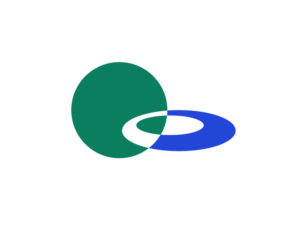Don’t Forget to Carry Important Documents With You and Don’t Refuse to Present Them When Asked!
There are times when we go out and forget to bring our wallets or handbags with us. There are also times when we forget to check for our important documents when changing or cleaning out our wallets/bags. You might think nothing of it, but there are in fact cases in Japan where this kind of forgetfulness can lead to serious problems, so caution is necessary.
Here are three examples which break down different scenarios involving important documents.
○ Residence Card (Zairyū Kaado / 在留カード)
You must carry your Residence Card on you at all times, and you must be able to present it to authorities from Immigration, Immigration Control, and Police, etc. when asked. If you are found to not have your Residence Card on you, you can face a fine of up to 200,000 yen; failure to present your Residence Card upon being asked can result in imprisonment for up to one year or a fine of up to 200,000 yen.
〇 Driver’s License (Jidōsha Unten Menkyosho / 自動車運転免許証)
Demerit Points: None
Penalty Fine: 3,000 yen
If you are able to prove that you actually have a valid driver’s license, you may be allowed to drive home without it in many cases. However, there are some cases where you may be required to go and retrieve the license (or have someone deliver it to you) before being allowed to drive.
〇 Health Insurance Card (Kenko Hokensho / 健康保険証)
In the event you do not have your Health Insurance card with you, in principle, you will be asked to pay the medical bill in full. National Health Insurance (Kokumin Kenko Hoken/国民健康保険) can reimburse 70% (or 80%) of the paid medical bill following an application and review process in the following cases:
1. If medical treatment was received for unavoidable reasons while on vacation or travelling, etc.
2. The costs of corsets or other prosthetic devices if deemed medically necessary by a physician.
3. When treatment was received from a Judo Therapist.
4. The costs of acupuncture, moxibustion, massage, or other similar treatments if deemed necessary by a physician.
5. When a doctor visit was made while travelling overseas (excluding medical tourism).
If you pay for medical costs in full up front, a reimbursement is possible when using Social Insurance (Shakai Hoken/社会保険), specifically that of the National Health Insurance Association (Zenkoku Kenko Hoken Kyōkai/全国健康保険協会).
When it comes to health insurance, in principle, you are expected to present your health insurance card at a medical institution in order to receive treatment, a system that is called benefits in kind. However, in cases where someone is unable to receive benefits in kind due to unavoidable reasons, or when medical braces (prosthetics, corsets, etc.) are needed for treatment, the medical expenses incurred can be paid temporarily in full and then later be reimbursed as medical expenses (or family medical care expenses in the case of dependents) upon request.
These medical expenses will not be reimbursed in full. Any reimbursement of medical expenses made will be calculated based on the cost of treatment at the institution(s) where beneficiaries and/or their dependents received treatment, with the amount of the partial cost subtracted from this amount (in the event the amount paid is less than the list price of medical treatment, it will be calculated on the basis of the actual amount paid). In addition, expenses and other costs which are not covered by health insurance will be excluded.

